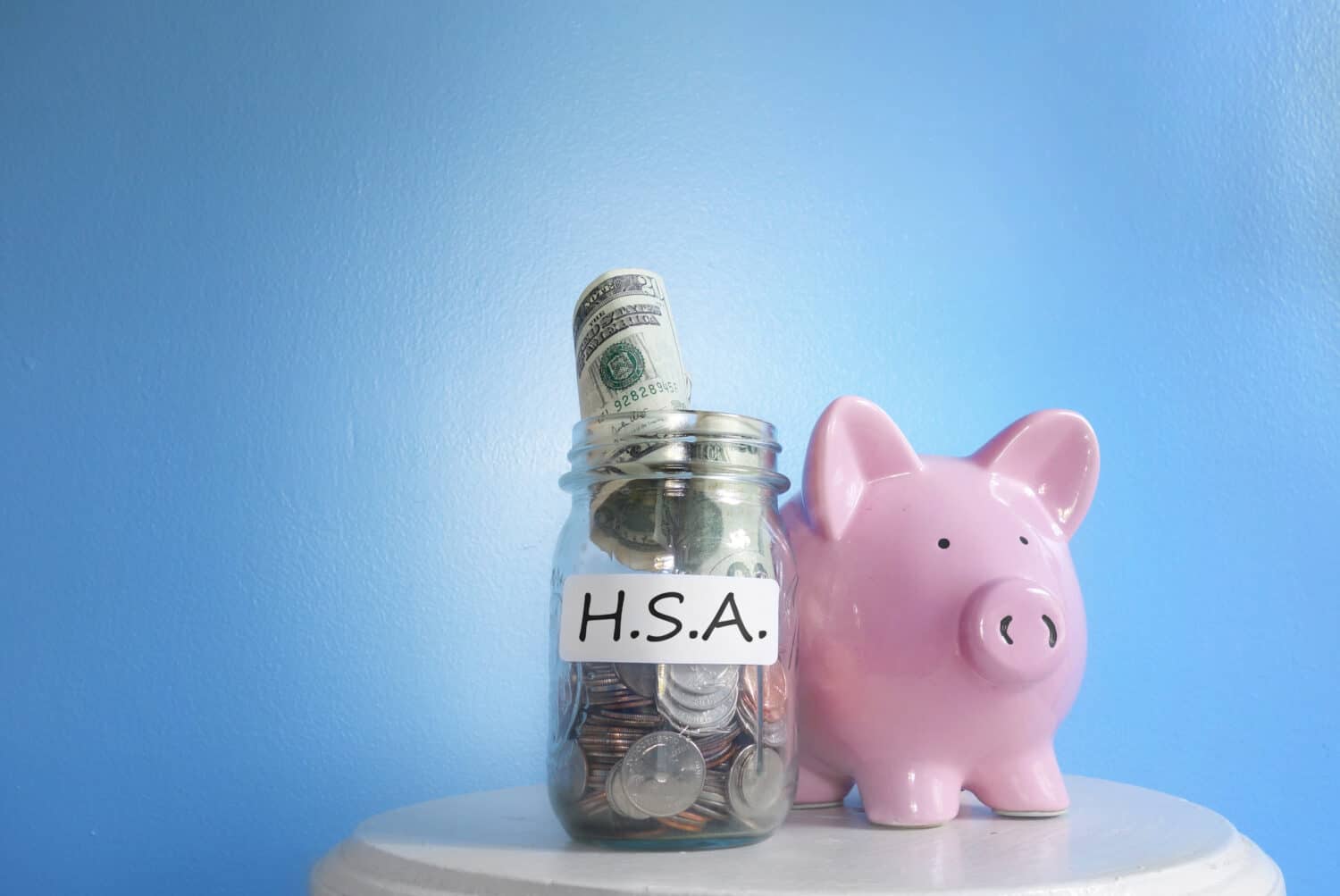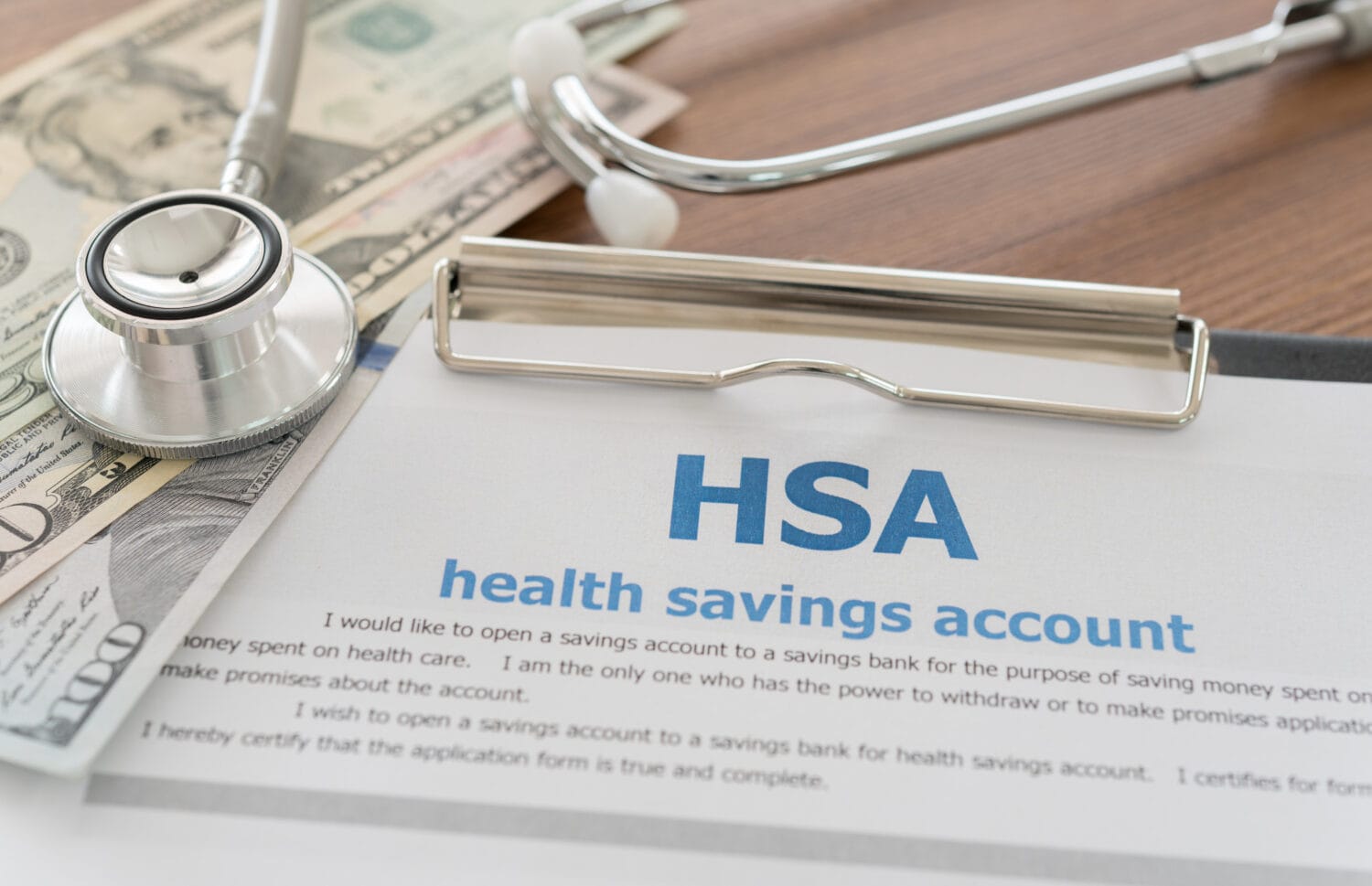

Health savings account (HSA) distributions are tax-free as long as they cover qualified medical expenses, as defined by the IRS. However, you need to understand some rules to avoid penalties for making non-qualified distributions.
What is an HSA distribution?

An HSA distribution is a withdrawal made from your HSA. It can be a debit card transaction, a check, or funds transferred from the HSA to another account.
It can also be in the form of receipts sent to your HSA provider for reimbursements from your HSA.
When distributions are used to pay for qualified medical expenses, they are tax-free. Qualified medical expenses cover a wide range of medical, dental, and prescription costs.
These can include the following.
Medical
Acupuncture
Acid controllers
Alcoholism treatment
Allergy and sinus medicine
Ambulance
Anti-diarrheals
Anti-gas products
Anti-itch and insect bite
Anti-parasitic treatments
Baby rash ointments/creams
Birth control
Body scans
Braille books and magazines
Breast pumps and lactation supplies
Chiropractor
Co-insurance (medical, dental or vision)
Co-payments
Cold sore remedies
Cough, cold and flu
Crutches or canes
Deductibles
Diabetic supplies
Diagnostic services
Digestive aids
Drug addiction treatment
Feminine anti-fungal/anti-itch
Fertility enhancements
Flu shots
Guide dogs or other service animals
Hearing aids and batteries
Hemorrhoidal preps
Hospital services
Insulin
Laboratory fees
Lamaze classes
Laxatives
Learning disability treatments
Menstrual care products
Mastectomy-related special bras
Medical equipment and repairs
Medical monitoring and testing devices
Medical supplies
Motion sickness
Nursing services
OB/GYN
Office visits
Oxygen
Pain relievers (for example, aspirin)
Physical exams
Physical therapy
Pregnancy tests (over-the-counter)
Prescription drugs
Prosthesis
Psychiatric care
Reconstructive surgery following
Respiratory treatments
Mastectomy
Sleep aids and sedatives
Smoking cessation (programs/drugs)
Speech therapy
Sterilization
Stomach remedies
Surgery
Transportation, parking and related
Travel expenses
(essential to receive medical care; subject to IRS limits)
Vaccinations
Vasectomy
Weight loss program and/or drugs
(if prescribed by a physician to treat a specific medical condition)
Wheelchair
X-ray fees
Dental
Braces
Dentures
Exams
Extractions
Fillings
Teeth cleaning
X-rays
Vision
Contact lenses
Examinations and glasses
Laser eye surgery
Reading glasses (over-the-counter)
But be aware that the IRS can change its list of qualified medical expenses at any time. You can find the latest details by accessing the current version of Publication 502.
However, distributions made for non-qualified medical expenses – anything other than a qualified expense – will trigger ordinary income tax on the distribution and a 20% penalty.
Reporting HSA contributions

All types of HSA distributions need to be reported to the IRS. Whenever you make a withdrawal from your HSA, your HSA provider, custodian or trustee makes an IRS Form 1099-SA. This details your contributions and any distributions for the year.
The trustee or custodian then sends a copy of Form 1099-SA to you and the IRS. You must then use the data on that form to complete IRS Form 8889. You’d include this with your Form 1040 when you file your taxes.
How does an HSA work?

HSAs can be very effective because of their tax benefits. Contributions to an HSA are tax deductible. The money in an HSA grows tax-free. And withdrawals are tax-free as long as they cover qualified medical expenses.
Some employers offer HSAs as part of their benefits packages. But you can also open an HSA through many banks and financial institutions. Some providers also let you contribute to an HSA similarly to how you’d contribute to an individual retirement account (IRA) or 401(k) plan. You can use your HSA to invest in securities like mutual funds and exchange-traded funds (ETFs). Or you can invest in a fixed-interest HSA account.
And when you reach age 65, you can use HSA distributions on anything penalty-free. However, you’d still owe ordinary income tax on the withdrawal if you use it on a non-qualified expense. But it’s still a perk that helps make HSAs effective retirement planning tools.
And in order to be eligible for an HSA, you’d need to pair it with a high-deductible health plan (HDHP). For 2024, that annual deductible minimum is $1,600 for individual coverage or $3,200 for a family coverage.
Why this matters

HSA distributions are tax-free when you use the funds on qualified healthcare expenses. But use them for anything else, and you’d face serious tax consequences. So it’s important to understand how distributions work and how to report them to the IRS. To make this simpler, we prepared this guide.
If you want to learn more about HSAs, check out our regularly-updated HSA main page for the latest coverage.
ALERT: Take This Retirement Quiz Now (Sponsored)
Take the quiz below to get matched with a financial advisor today.
Each advisor has been vetted by SmartAsset and is held to a fiduciary standard to act in your best interests.
Here’s how it works:
1. Answer SmartAsset advisor match quiz
2. Review your pre-screened matches at your leisure. Check out the advisors’ profiles.
3. Speak with advisors at no cost to you. Have an introductory call on the phone or introduction in person and choose whom to work with in the future
Take the retirement quiz right here.
Thank you for reading! Have some feedback for us?
Contact the 24/7 Wall St. editorial team.



